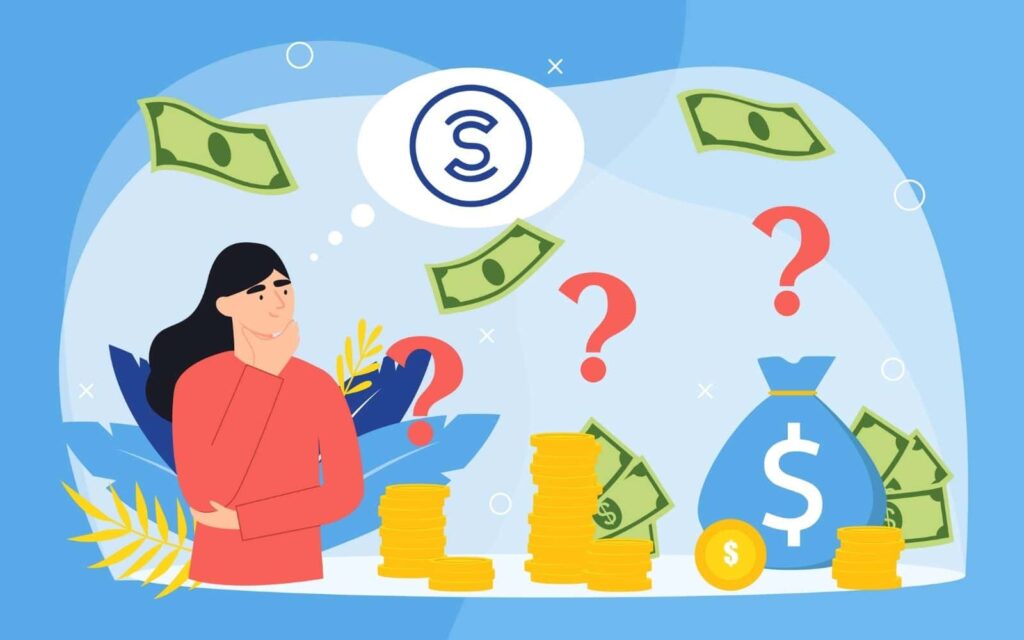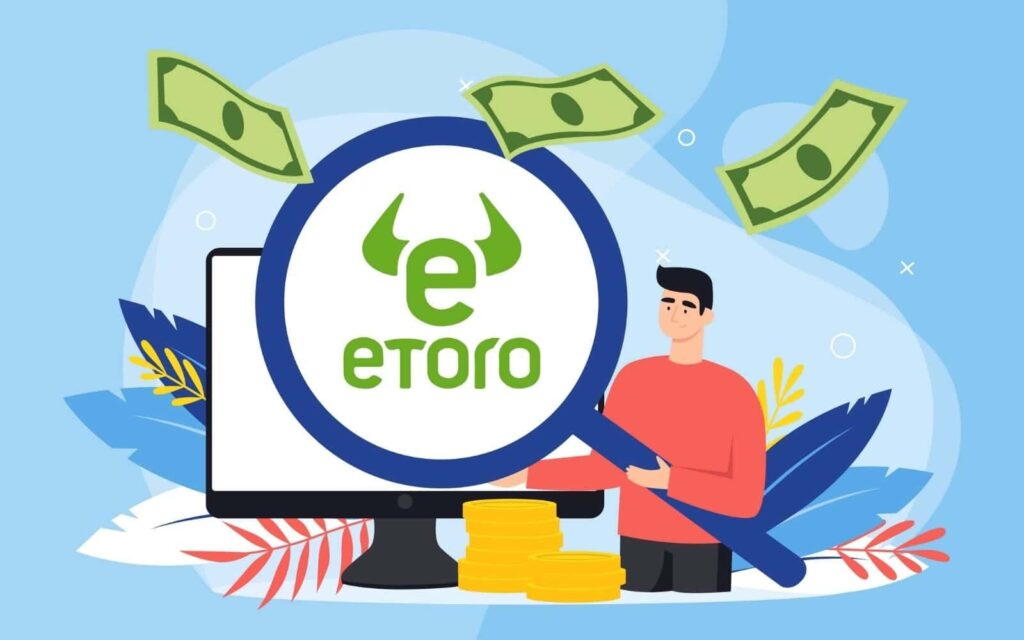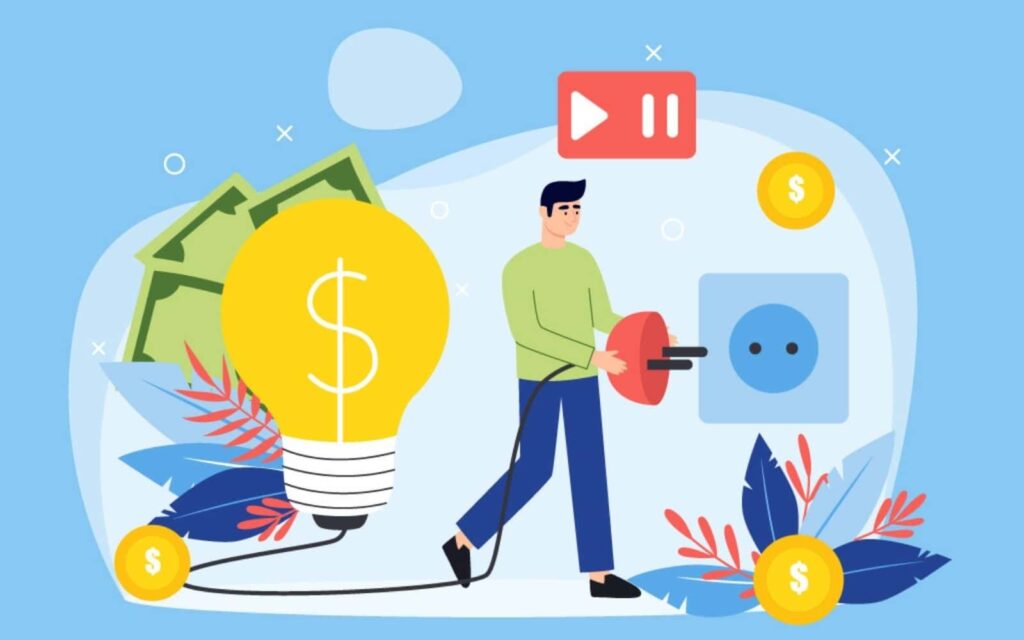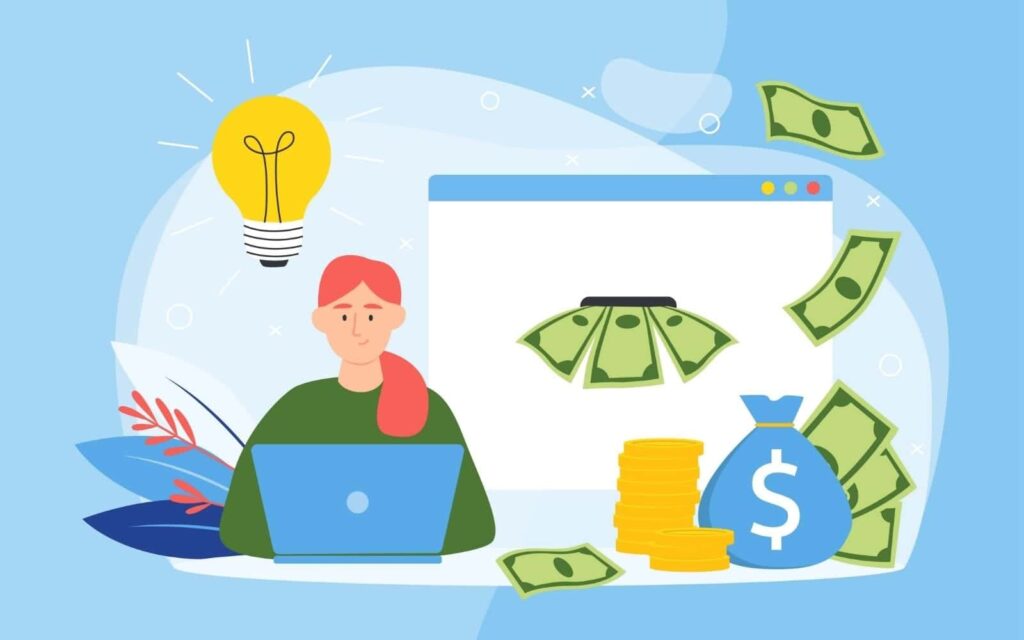Disclosure: This post may contain affiliate links. If you click on a link I may make a small commission at no extra cost to you. You can read the full disclosure here.
Last Updated on October 11, 2023 by Alex
Imagine being able to pursue your passions, enhance your expertise, or even switch careers while earning a wage. It’s not a pipe dream; it’s a reality that countless individuals are embracing today.
Yes, you can really get paid to learn.
In this post, you’ll learn everything you need to know about getting paid to learn. Whether you’re a student, a professional seeking a change, or someone with a burning curiosity about a new skill, this post is your compass to navigate the world of paid learning.
Can You Really Get Paid To Learn

Yes, it’s possible to get paid to learn. Here are some ways in which you can get paid to learn:
- Apprenticeships
- Internships
- Scholarships and grants
- Employee Tuition Assistance
- Research Fellowships
- Paid training program
- Online courses
- Freelancing
- Government programs
- Work-Study programs
- Educational Grants
- Military education and training
Many of these opportunities have eligibility criteria for people of all ages, not just young people in high school.
Get Paid To Learn
There are many ways you can get paid to learn. Here’s a closer look at some of the best ways you can earn while you learn.
Internships
Paid internships are an excellent way to gain practical work experience and learn while earning a salary. Here are some tips and strategies to find paid internships where you can get paid to learn.
Internship Search Engines
There are several websites and search engines dedicated to finding internships, including paid ones. Some popular platforms include Internships.com, Indeed, LinkedIn, and Glassdoor.
You could also contact your local American Job Center to get further help.
University Career Advice
If you’re a college or university student, your school’s career services office can be a valuable resource. They often have listings of internship opportunities, including paid ones, and can provide guidance on how to apply.
Company Websites
Visit the websites of companies or organizations you are interested in interning with. Some organizations may list their internship opportunities and application processes on their own sites. They can even pay you for ideas, learn more here.
Industry-Specific Websites
Depending on your field of interest, there may be industry-specific websites or job boards that list paid internship opportunities. For example, if you’re interested in technology, websites like Stack Overflow or GitHub Jobs often list tech-related internships.
Professional Associations
Joining a professional association related to your field can provide access to job boards and networking opportunities. Many associations also offer information about internships.
Apprenticeships
Getting paid to learn through apprenticeships is a viable and rewarding path to gaining skills and knowledge in various skilled trades or industries such as computer science.
Reach out to local businesses or find a national apprenticeship program. Many countries have government-sponsored apprenticeship programs, and there may be private apprentices programs as well.
For example, the U.S. Department of Labor offers resources and listings for apprenticeships on its website.
Websites like Apprenticeship.gov (for the U.S.), Indeed, LinkedIn, and Monster may have listings for apprenticeships.
Tech careers including web developer, information technology officer, and software developer are often available as apprenticeship opportunities. Why not put your coding skills to use by getting paid to learn in this constantly growing industry and start on your tech career path.
Learn A Foreign Language

Getting paid to learn a foreign language can be challenging, but it’s not impossible. Here are some ways you can potentially earn extra money while learning a foreign language.
Teaching Or Tutoring
Once you have a reasonable proficiency in a foreign language, you can offer language tutoring or teaching services. This can be done independently or through language schools, online platforms, or language exchange programs. You can charge for your services while continuing to improve your language skills through teaching.
If you are a native English speaker and are learning a foreign language, you can consider teaching English as a second language in a foreign country. This allows you to immerse yourself in the culture and language while earning a living.
Translation And Interpretation
If you become proficient in a foreign language, you can work as a translator or interpreter. Translation involves converting written content from one language to another, while interpretation involves spoken communication.
For example, you could choose a career path in bilingual customer service.
Content Creation
If you’re proficient in both your native language and the foreign language you’re learning, you can create content in both languages. This could include writing articles, creating YouTube videos, or starting a blog. As your content gains popularity, you may earn money through ads, sponsorships, or affiliate marketing.
Freelance Writing Or Copywriting
If you’re a skilled writer, you can offer your writing services in both languages. Freelance writing or copywriting gigs can provide you with income while allowing you to practice your language skills.
Language-Related Jobs
Seek out jobs or careers where language skills are an asset. For example, working in international business services, tourism, or diplomacy often requires proficiency in foreign languages. You can also seek transcription jobs, learn more about it here.
Apply For A Fellowship Or Grant
Getting paid to learn through fellowships or grants is a fantastic opportunity for individuals looking to further their education, skills, or research in a particular field. Fellowships and grants can provide financial support while you pursue learning or research. Here’s how to go about finding such opportunities:
- Look for organizations, foundations, government agencies, and institutions that offer fellowships or grants related to your field or area of interest
- If you’re a student or affiliated with an academic institution, consult with your university’s office of scholarships and financial aid, as well as your department or school
- Websites like Grants.gov (for the United States) and GrantStation offer comprehensive databases of grants and fellowships
- Some websites are dedicated to listing fellowships and grants. For example, the ProFellow website offers a database of fellowships and their application deadlines.
Become An Artist

Becoming a paid artist while continuously learning and improving your skills is both challenging and rewarding. Here are some steps to help you pursue a career as an artist and potentially get paid to learn and create art:
- Build a portfolio
- Connect with fellow artists, art enthusiasts, and professionals in the art world
- Create an online presence through a website or social media platforms dedicated to showcasing your art
- Share your work regularly, engage with your audience, and consider selling your art online through platforms like Etsy or Saatchi Art
- Offer your art services for commissions. You can create custom artwork for clients, such as portraits, illustrations, or murals
- Look for art grants, fellowships, and residency programs that support emerging artists
- Apply for artist residencies, which offer a dedicated time and space to focus on your art
- Consider teaching art classes or workshops, either in person or online
- Participate in art competitions and submit your work to local, national, and international exhibitions
- Collaborate with other artists, designers, or organizations on projects that align with your artistic interests
Learn To Cook
Getting paid to learn and simultaneously learning to cook can be a delightful and practical pursuit. Here’s how you can combine these goals:
- Some restaurants and culinary establishments offer paid apprenticeships where you can learn the art of cooking while earning a wage
- Start working in a restaurant or commercial kitchen
- You can host cooking demonstrations or workshops and charge participants for attending
- Offer personal chef services where you cook meals for clients in their homes
- Start a food blog or YouTube channel where you share your cooking journey, recipes, and cooking tips. Once your platform gains an audience, you can monetize it through ads, sponsorships, and affiliate marketing
- Write a cookbook and get paid for your recipes and culinary knowledge
- Start a catering business specializing in events, weddings, or corporate gatherings
- If you have photography skills, you can specialize in food photography. You can sell photos to online platforms including Foap, Shutterstock, and Adobe Stock
- Develop and sell online cooking courses using platforms like Udemy or Teachable
Start A Blog
Starting a blog can be a fulfilling way to share your knowledge, experiences, and interests while potentially earning an income. Here’s how to combine getting paid to learn with starting a blog.
Choose Your Niche
Select a niche or topic for your blog that aligns with your passion and expertise. It could be related to a field you want to learn more about, or it could be something you’re already knowledgeable in. Ensure there’s an audience interested in your chosen niche.
Create Quality Content
Start creating high-quality blog posts. Share your insights, experiences, and any knowledge you acquire as you learn more about your chosen niche. Consistency is key; aim to publish content regularly.
Monetize Your Blog
You can monetize your blog using any or all of the following methods:
- Ads
- Affiliate marketing
- Sponsored posts
- Sell digital products
- Offer consulting or coaching
- Build a membership site
- Donations and crowdfunding
Build Your Audience
Promote your blog through social media, email marketing, and search engine optimization (SEO) to attract a larger audience. Engage with your readers through comments and social media to foster a sense of community. Learn more about blogging here.
Get Paid To Search The Web

Getting paid to learn and getting paid to search the web are two separate concepts, but it’s possible to combine them to some extent. Here’s how you can do both:
- Online platforms like Swagbucks and Qmee offer paid tasks like searching the web
- Participate in online research studies, online surveys, or market research
- Become an affiliate marketer and combine your web searching with affiliate marketing
- Install browser extensions like Honey or Rakuten that help you find discounts and cashback offers when shopping. What to learn more about how to make money online? Check here. And another excellent guide on how to get paid for searching the web here.
Start A YouTube Channel
Creating a YouTube channel can be a fun and potentially profitable way to share your learning journey while earning money through various monetization methods. Here’s how to get paid to learn and start a YouTube channel:
- Choose your niche
- Popular niches include technology, beauty, gaming, travel, cooking, and education
- Create a content plan or schedule
- Decide on the type of videos you want to make, such as tutorials, vlogs, reviews, or classroom instruction
- Create high-quality videos
- Monetize your channel using ads, affiliate marketing, sponsorships, selling merch, and by enabling Super Chats or Super Stickers
- Share your videos on social media platforms, your blog (if you have one), and relevant online communities or forums
Become A Podcaster
Becoming a podcaster is a creative way to share your knowledge and interests while potentially earning income. Here’s how to get paid to learn and start a podcast:
- Choose your podcast topic
- Create a podcast plan
- Record your podcast episodes, ensuring they are engaging and well-structured
- Edit your recordings to remove background noise, mistakes, or long pauses. Editing software like Audacity or Adobe Audition can be helpful
- Choose a podcast hosting platform to store and distribute your episodes. Popular options include Libsyn, Podbean, and Anchor
- Monetize your podcast through ads, affiliate marketing, donations, merchandise, and premium content
- Use social media, your website, and other marketing channels to promote your podcast
- Engage with your audience and encourage them to share your episodes with others
FAQs
What does “get paid to learn” mean?
Getting paid to learn refers to the concept of earning money while acquiring new skills, knowledge, or expertise. This can be achieved through various means, such as internships, apprenticeships, scholarships, or educational programs.
Are there opportunities to get paid while pursuing a degree?
Yes, there is an economic opportunity to get paid while pursuing a degree, such as through work-study programs, research assistantships, and scholarships that cover tuition and living expenses.
Can I earn money while learning a new skill or trade?
Yes, you can earn money while learning a new skill or trade through apprenticeships, on-the-job training, and vocational programs that offer a stipend or wage during the learning process.
Where can I find paid learning opportunities?
You can find paid learning opportunities through job search websites, university career services, professional associations, company websites, government programs, and networking within your field of interest.
For example, Michigan Works is one example of a platform for locals to access resources to get paid to learn. You could find a paid opportunity by the hour or with an annual salary.
Is it possible to get paid to learn a foreign language?
Yes, you can get paid to learn a foreign language through language teaching or tutoring, translation and interpretation services, language-related jobs, and certain scholarships or exchange programs.
Can I get paid to learn while pursuing my hobbies or interests?
Yes, you can explore opportunities to monetize your hobbies or interests, such as by starting a blog, YouTube channel, or offering coaching or consulting services related to your passion.
What should I consider before pursuing a paid learning opportunity?
Before pursuing a paid learning opportunity, consider your goals, the quality of the program or job, the potential for long-term benefits, and whether it aligns with your interests and career aspirations.
Does the government sponsor getting paid to learn?
The US government often offers programs including apprenticeships. One recent initiative saw an executive order enacted in the state of California to help boost the career choices of many students.
What eligibility criteria do I need to meet to get paid to learn?
The eligibility criteria depend on the program you are applying for. Some programs may only require a high school diploma, others may require an advanced degree.
There are many different types of job opportunities all requiring different job skills. For example, welding or electricians will need a different skill set than a freelance writer. However, the eligibility criteria should be explained during the hiring process so you can make sure you meet the requirements of your equal-opportunity employer.







